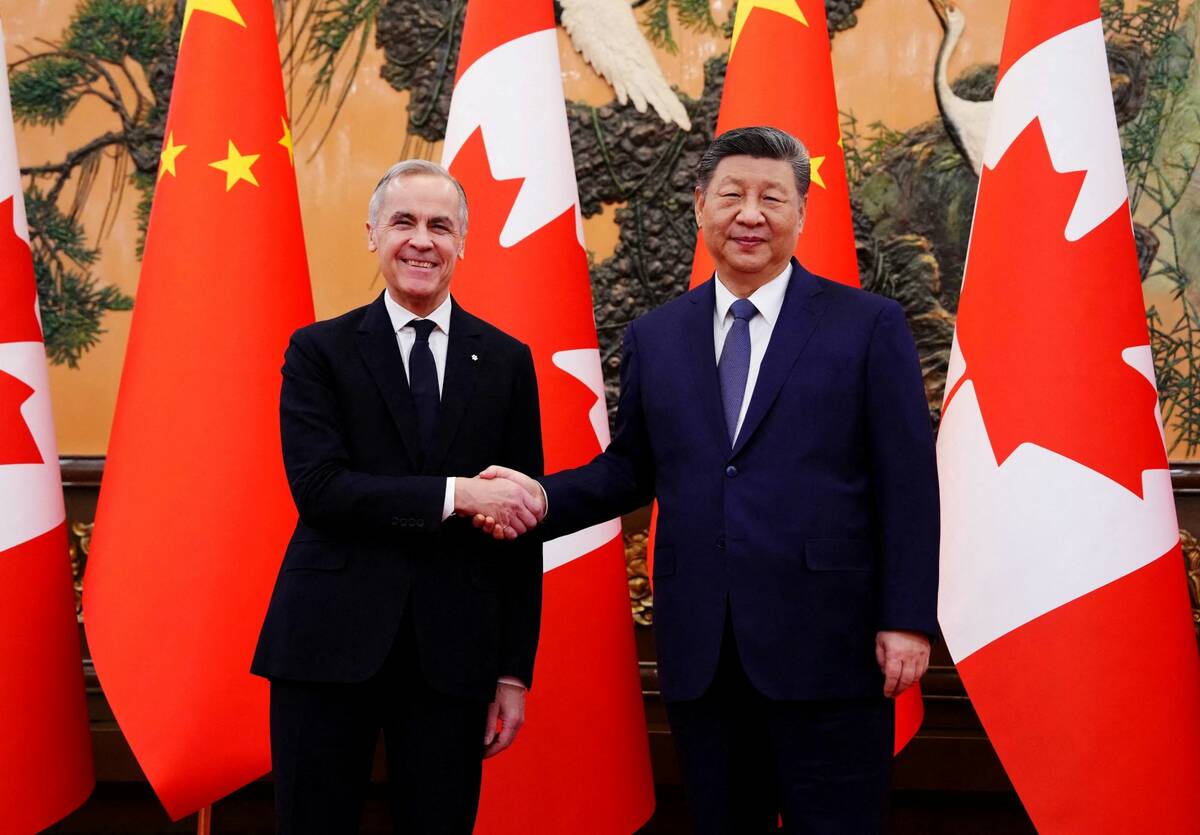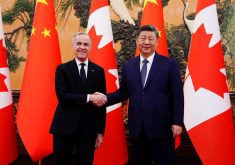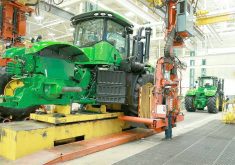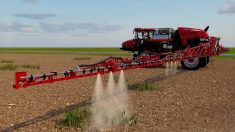There is something of an inevitability to politics in Alberta. Anyone who wins the leadership of the Progressive Conservative party will be the next premier. If recent polls are any indication, that person will in all likelihood also win the next election. That makes the policy positions of the six candidates running for the premier’s job worth examining. Having done that, it would seem agriculture will receive a lot of benign neglect.
That’s because of the six candidates, five have basically no agriculture policy at all. Three managed to not even mention the word agriculture in their platforms on their websites. This does not bode well for the second-largest industry in Alberta.
Read Also

Pragmatism prevails for farmers in Canada-China trade talks
Canada’s trade concessions from China a good news story for Canadian farmers, even if the U.S. Trump administration may not like it.
One could blame it on the lack of any understanding of agriculture by the urban candidates. However, the only candidate who had any actual agriculture policy was Alison Redford, a big-city lawyer from Calgary. Two rural candidates, Doug Horner (a former agriculture minister) and Doug Griffiths (a former rural development parliamentary secretary) who you would expect to have robust views on agriculture, barely mentioned the word.
To be fair, in order to determine if the candidates had any agriculture policy, I went to their websites, which in today’s social media mindset should be their main self-promotion machine. But alas, it’s amazing that amongst the graphic razzle-dazzle, how little some candidates have to say. It’s mostly the usual platitudes about our great province, the great opportunities, and how candidates want to encourage all that with some grandiose vision. There are some specifics, particularly on education and some social issues.
Most of the candidates had something to say about energy, as they should about the No. 1 industry, but dang it all, couldn’t they all say something about the No. 2 industry? It’s not exactly an insignificant multibillion-dollar contributor to the economy.
As hard as it may be to believe, candidate Ted Morton, who has a considerable rural area in his riding, couldn’t mention agriculture, but he did have space to promise new initiatives for fishing and hunting, a personal hobby I expect. Candidate Gary Mar’s only mention of agriculture was a promise to support the termination of the Canadian Wheat Board monopoly. Well that was sure daring and insightful, being it’s a federal issue that was already decided by the Conservative government in Ottawa.
Tame events
During the summer the candidates have attended party-organized forums across the province. I expect the intent is to have them debate issues and lay out their personal positions. By all accounts the forums are pretty tame events, which one should expect from folks who share the same political perspectives. Most were ministers or secretaries in past and present PC governments. They can’t be expected to admit that they made any mistakes. Although two candidates, Rick Orman and Alison Redford, have stuck their necks out and want the contentious Bill 36, the Land Use Framework, either repealed or reviewed. That would be over candidate Ted Morton’s dead body, since he was the godfather of the legislation.
Perhaps some of the candidates have their agriculture policies buried somewhere, or perhaps they naively assume that all is well out there in the vast farming and ranching hinterland. The other factor is the ingrained nature of the PC party to ignore the countryside, being they see the citizens out there as captive voters, so why would candidates go against the grain of present government policy?
In the faint hope that the other five candidates might realize that they should have agriculture and land policies, here are a few big-picture issues they could consider. The hog industry is on the edge of collapse, GM cereals need to be researched and promoted to compete with GM corn and oilseeds, the wind power industry and transmission lines need to be investigated and exposed, property rights need to be truly clarified and resolved, landowner environmental services need to be recognized and compensated, short-line railways are in crisis, irrigation needs a new expansion vision, industrial biodigesters need to be supported, producer support programs need to address actual needs, and the list goes on and on.
There are indeed agriculture and land issues that are in need of some attention and it would be refreshing to see all the candidates at least recognize that problems exist. Even more inspirational would be enlightened policies that would show some initiative to take action. Well, at least we can hope.
———
Butdangitall,couldn’tthey allsaysomethingabouttheNo. 2industry?It’snotexactlyan insignificantmultibillion-dollar contributortotheeconomy.














